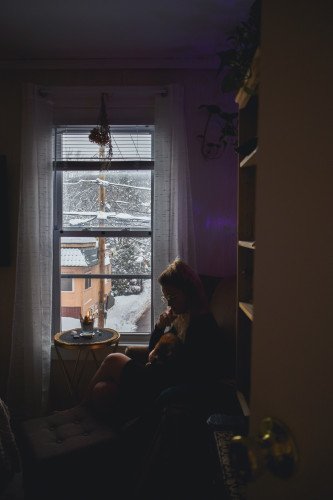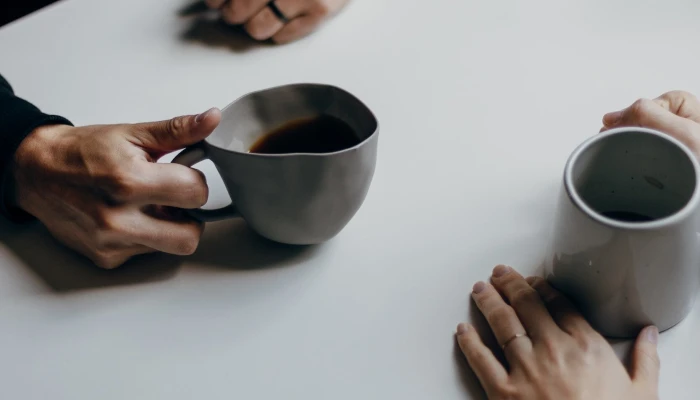Unraveling the rise of Domestic and Family Violence during the festive season
As the festive season dawns upon us, adorned with twinkling lights, cheerful melodies, and the promise of togetherness, there exists a grim and often overlooked reality. Contrary to the merry facade that blankets the holiday spirit, incidents of domestic violence tend to surge up to 49% during this time of year.
December and January have long been the busiest time of year for specialist family violence support services. This is reflected in data on calls to services and police, which dramatically increased during the 2020-21 holiday season.
The question that arises is why, amidst the jubilation and warmth, does this darker facet of human relationships intensify?
The pressure cooker effect
Christmas, with its societal emphasis on joy, family gatherings, and communal celebrations, paradoxically amplifies existing tensions and stress within households. Expectations of perfection, financial strain from gift-giving, and the strain of managing family dynamics can all act as triggers for conflict. The pressure to create an idealized festive experience can strain relationships that are already fragile, leading to an upsurge in arguments and, tragically, incidents of abuse.
Heightened financial burdens
The financial strain that often accompanies the holidays can become a catalyst for domestic discord, and particularly this year with rising interest rates and charities reporting unprecedented levels of help being sought. The desire to meet societal expectations by buying gifts, hosting lavish meals, or partaking in expensive traditions can stretch already tight budgets to the breaking point. Financial stress can evoke feelings of inadequacy, frustration, and helplessness, often culminating in heightened conflict within households.
Alcohol and substance abuse
The festive season is associated increased alcohol consumption, while this can enhance the spirit of celebration for many, it can also exacerbate tensions and lower inhibitions, leading to aggressive or violent behavior. Substance abuse, whether it’s alcohol or other substances, is not causal for gender-based violence, however it can fuel underlying attitudes of gender inequality, resulting in an increase of domestic & family violence incidents.

Isolation and expectations
Contrary to the perceived narrative of togetherness, the holidays can also magnify feelings of isolation for individuals in strained relationships. The emphasis on being surrounded by loved ones can intensify the feelings of loneliness and isolation for those who are in abusive situations.
The holiday season causes further difficulties for victims with fewer opportunities to report abuse and routes to safety shut down. School closures for the holidays also mean that opportunities for children to report abuse and access support are restricted.
Seeking solutions
Understanding the underlying triggers that contribute to the rise in domestic and family violence during the holidays is crucial in formulating effective solutions. Promoting awareness about available support systems, such as helplines and shelters, is essential in providing victims with the resources to seek help and support. Encouraging open dialogue about healthy coping mechanisms for stress and conflict resolution within families could also mitigate the escalation of tensions.
While the festive season brings with it an air of joy and camaraderie, it’s imperative to acknowledge the stark reality that many individuals and families face behind closed doors. By shedding light on the factors that contribute to the surge in domestic violence during this time, there is an opportunity to provide strategies that prioritise the safety and well-being of vulnerable individuals. This entails not just recognising the problem but actively working towards creating a support network that ensures everyone can truly experience the warmth and joy the holidays are meant to embody.
At Enmasse, we are committed to creating workplaces that prevent free from domestic and family violence. For more information about our training programs and resources, including webinars on understanding and preventing domestic and family violence, please visit our website https://enmasse2.com/ or email enquiries@enmasse2.com.
If you or someone you know is being subjected to domestic or family violence, it's important to seek help. In the UK, you can call the Respect helpline on 0808 802 4040 or email helpline@womensaid.org.uk and staff will reply within 5 working days. In Australia, organisations like 1800 RESPECT, Lifeline (13 11 14) or No to Violence (Men’s referral service) 1300 766 491 can offer help and support.
References:
https://ntv.org.au/wp-content/uploads/2021/01/Safe-Silly-season\_VIC\_Dec11.pdf
https://safeandequal.org.au/2021/12/21/everyone-has-the-right-to-be-safe-at-christmas/
Domestic abuse in England and Wales overview - Office for National Statistics (ons.gov.uk)


